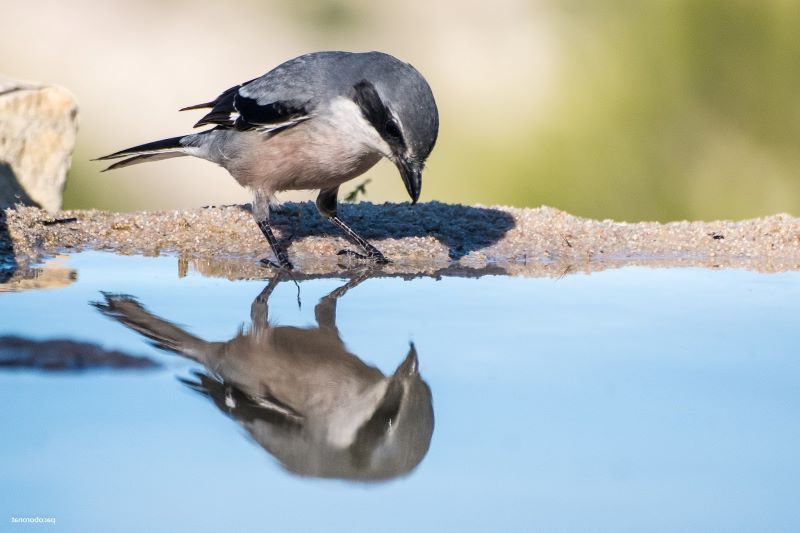He plumbism in wild birds It is a really serious problem. And not only field or wild birds suffer from it, but it often reaches consumers’ plates directly. And we must not forget that lead is bioacumulable, so it is toxic for everyone.
It is estimated that, annually, around twenty thousand tons of lead are shot into the countryside in the European Union. SEO/BirdLife, which has been working for decades to eliminate the threat posed by the use of lead in activities that have a direct impact on the natural environment, has taken another step to understand this problem.
The NGO has commissioned, with the support of the Ministry for the Ecological Transition and the Demographic Challenge (MITECO), a specific study on the effects of lead to experts from the Hunting Resources Research Institute (IREC), and the Institute of Environmental Diagnosis and Water Studies (IDAEA). The main conclusion is that plumbism affects all wild birds.


Plumbism in wild birds: Impact of hunting ammunition
The study plumbism in wild birds terrestrial in Spain: The contamination by lead ammunition beyond the humid areas concludes that, on the one hand, the pellets are ingested by grain-eating birds (such as pigeons or partridges) but there is also a diffusion to plants that end up passing into the chain trophic. In addition, it has been found that lead concentrations can be lethal, although more frequently they cause reproductive, physiological and immunological problems.
Another aspect that is extracted from the report about the plumbism in wild birds is that lead also passes to predators, its presence has been recorded in 20 species of birds of prey, and in 12 of them they reach lethal levels.
The prevalence of lethal poisoning is above 10% in three species (griffon vulture, golden eagle and goshawk). The reduction in populations below their carrying capacity reaches 13.2% in the golden eagle, the most affected species.
But, in addition, the study on the plumbism in wild birds notes that lead ammunition is also a significant source of lead in game meat intended for human consumption. So around 50% of small game and processed foods with big game meat exceed the maximum lead levels established by the EU for meat.
Plumbism in wild birds: possible alternatives at play
The European Commission soon has on its agenda to decide on the restriction on lead ammunition for all types of hunting and outdoor sports shooting, in addition to lead weights used in fishing, at the proposal of the European Substances and Chemicals Agency. Chemical Mixtures (ECHA).
However, despite ECHA issuing its opinion on the ban a year ago, the European Commission has not yet published a first proposal, which it should have issued within three months. And, meanwhile, the problem of plumbism in wild birds it continues to worsen.
SEO/BirdLife insists that the replacement of ammunition made from this heavy metal with less toxic alternatives should be considered to guarantee sustainability in hunting and fishing activities. In addition to this latest report, the NGO recalls that since 2018, ECHA already recognized in a study the risk that lead has for the environment and public health.
Plumbism in wild birds: Next steps in the CMS
On February 12, the 14th conference of the parties to the Convention on Migratory Species (CMS), also known, unofficially, as the Bonn convention, begins in Samarkand, Uzbekistan.
In this meeting, which SEO/BirdLife attends to discuss different topics, the removal of lead will also be discussed as in previous editions, in which a unanimous agreement was already reached in this regard. This issue has been called out since SEO/BirdLife advocated and got it included in the resolutions of the 11th meeting of the convention, ten years ago, in Quito, Ecuador.
Lead is, like other heavy metals, an extremely toxic and bioaccumulative substance, so its effects become chronic. Its danger has led to it being eliminated from most of the uses it had: increasing the octane rating of fuels, coloring or additive to paints or making water pipes.
Taking into account the evidence of its toxicity, Spain was a pioneer in prohibiting the use of lead for hunting in wetlands, something that has recently spread to the entire EU. and then in other countries.
However, lead in hunting ammunition not only affects aquatic birds, but also terrestrial birds, from partridges to birds of prey or ghouls. as demonstrated in this new study Plumbism in land birds in Spain. Contamination from lead ammunition beyond wet areas. Therefore, the Plumbism in wild birds It continues to be a matter of interest and work for organizations that seek the protection of wild species, such as the CMS.

